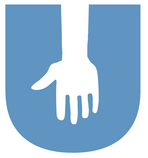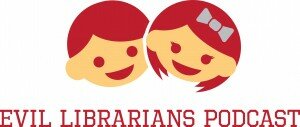By: Jessica Breiman, University of Utah J. Willard Marriott Library
 If you are like me, sometimes your job is not always the most fulfilling. You might feel stunted, bored, or outright frustrated by work obligations. Maybe the job isn’t fulfilling enough, maybe navigating the bureaucracy gets you down, maybe you get frustrated by the clash of personalities and competing demands of other librarians. Maybe it isn’t the job really at all; sometimes adult working life is not very exciting in itself, amirite?
If you are like me, sometimes your job is not always the most fulfilling. You might feel stunted, bored, or outright frustrated by work obligations. Maybe the job isn’t fulfilling enough, maybe navigating the bureaucracy gets you down, maybe you get frustrated by the clash of personalities and competing demands of other librarians. Maybe it isn’t the job really at all; sometimes adult working life is not very exciting in itself, amirite?
Whatever your frustration, it’s important to find sources of inspiration for yourself. Sources of inspiration can be books, people, projects, professional education, conferences, or any combination of the above.
Working in libraries, there are sources of inspiration on the shelves all around us. One that I recently read is Orbiting the Giant Hairball: A Corporate Fool’s Guide to Surviving with Grace by Gordon MacKenzie. MacKenzie is a retired Hallmark Greeting Card executive. Having served in a variety of positions, including as a greeting card designer, in a corporation that should reward and prize creativity, yet still gets bogged down in the minutiae of policies, meetings, and general bureaucracy, MacKenzie has years of insight into orbiting the corporate monster (or hairball) yet not getting sucked into its inner, entangled core.
MacKenzie (1998) writes, “Every new policy is another hair for the Hairball. Hairs are never taken away, only added. Even frequent reorganizations have failed to remove hairs (people, sometimes; hairs, never). Quite the contrary, each reorganization seems to add a whole new layer of hairs. ..With the increase in the Hairball’s mass comes a corresponding increase in the Hairball’s gravity. There is such a thing as Corporate Gravity. As in the world of physics, so too in the corporate world: The gravitational pull a body exerts increases as the mass of that body increases. And, like physical gravity, it is the nature of Corporate Gravity to suck everything into the mass – in this case, into the mass of Corporate Normalcy. The trouble with this is that Corporate Normalcy derives from and is dedicated to past realities and past successes. There is no room in the Hairball of Corporate Normalcy for original thinking or primary creativity” (p. 31). [emphasis mine]
The challenge for the reader is this: MacKenzie doesn’t offer the reader a roadmap to happiness and creativity at work. That’s our part of the journey!
One option to get you motivated could be asking what projects your colleagues are working on and offer to help; perhaps you can get involved with something outside your work zone and develop a new skill. Another option is simply to ask for help. I know that I forget that people, especially my colleagues, WANT to help me! All I have to do is ask! If you can be honest with your supervisor, maybe you can discuss your problem with them and ask for input or permission to start a new project. Maybe other colleagues can provide suggestions of what keeps them inspired and effective at work.
While admittedly, libraries have much less funding than Hallmark, what can we make happen on our wee little budgets? Maybe there is a free conference you can attend, a low-cost local training, or some other professional education opportunity that could help jumpstart your imagination. Is there a scholarship available? And how can your middle management help you?
MacKenzie (1998) writes “Any time a bureaucrat (i.e. a custodian of a system) stands between you and something you need or want, your challenge is to help that bureaucrat discover a means, harmonious with the system, to meet your need” (p. 139). What programs, projects, or collaborations could we start? Maybe it’s not a big thing. Maybe yours is a small project. But the point is to make it big enough so that you are launched away from the hairball and into orbit!
MacKenzie, G. (1998). Orbiting the giant hairball: A corporate fool’s guide to surviving with grace. New York: Viking Penguin.

